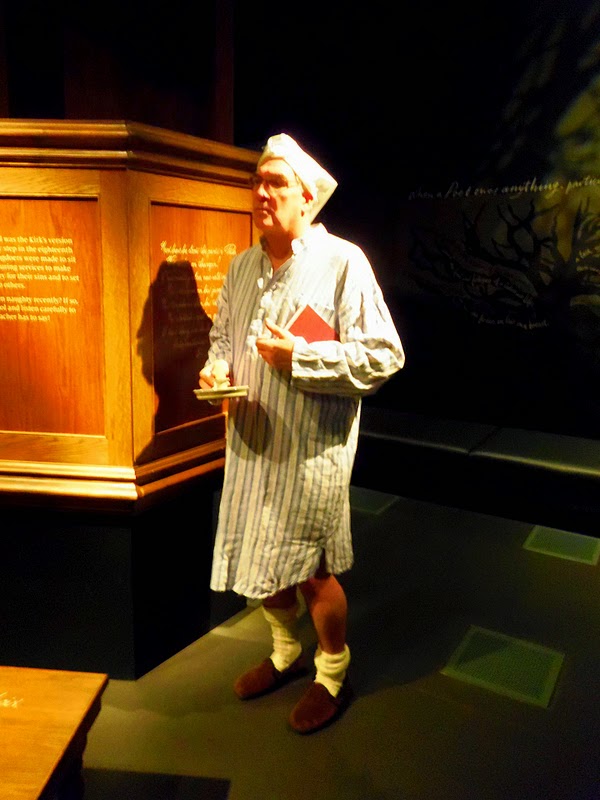The Sad Demise Of An Historic Part of Crieff : PART THREE
The Old Parish Church in Church Street Crieff
July 2014
PART THREE
Ministers of Crieff Parish Church
after Reformation
1560 : Alexander Christie – Catholic Priest joined Reformed
Church- reader in Monzievaird in 1567 .
1563 : Thomas Drummond – probably knew John Knox ( Heavenor
)
1572 : Hugh Currie Rector of Crieff could have been Catholic but pointed out that titles such as Rector could date back to
1560 “ an elementary but not uncommon error
to believe that there was any
religious significance in the use of such titles .
Everyone who held
office in the Church in 1560
continued for the rest of his
life to be designated as he had been in 1560 “
1574 : William Drummond
began his ministry . Probably both William and Thomas were connected with Drummond Castle
1592 : David Drummond was MA of Glasgow Gave up in 1636 and
went to Ireland
1635 : David Drummond ( nephew of above ) an MA of St Andrews had been his
uncle’s assistant . Son of James Drummond
, 5th Laird of Monzie – succeeded to lands of Kincardine and
Trytoun and purchased lands of Callander
near Barvick. These supplied
considerable income from tiends towards his stipend .
1638 : National Covenant signed pledging support for Presbyterianism .David Drummond supported
this but when Civil war broke out
he supported Royalists .Called before
Synod to answer charges that he raised
soldiers for the Royalist cause . Charge
was proved and sentence of deposition
passed in 1649 . Appealed but
sentence not lifted . Continued to
preach and take stipend . Got fed up and
resigned in 1658 and became Rector of
Omagh in N Ireland .Later was murdered for
unknown reason .
1658 : Gilbert Murray an MA of St Andrews succeeded .
Claimed he had made a pact with
Drummond to share the stipend .
Presbytery raised matter but Murray refused to appear . Probably connected to Murrays of Ochtertyre
. Trimmed his sails according to the
religious wind ! At outset was a
staunch Presbyterian but became an Episcopalian and allowed to continue his ministry .
1682 : His son
William Murray also an MA of St Andrews appointed his colleague and successor . Proved to be
convinced Episcopalian .Lord’s Prayer used in worship and the Doxology
was sung by the congregation and the
Apostles’ Creed was repeated at Baptisms – all of these frowned upon by the
Presbyterians of the time .
1688 : The “ Revolution “ brought William and Mary to the
throne .Murray did not support them
and was deposed for reading part of psalm 118 after the Jacobite victory
at Killiecrankie - “ This is the day God
made , in it we’ll joy triumphantly ”
1690 : Episcopacy was
overthrown and Presbyterianism established officially . Crieff Church
1699 : Appointment of John Drummond ( Glasgow University )
First problem was when the Presbytery
reported “ horrid abuse committed by some persons in the town of
Crieff ,by their drinking King James’ health publicly at the Cross and abusing
several inhabitants in the town .” Drummond
was asked to draw up a list of
offenders for the attention of the
Queen’s Advocate . Strict Presbyterianism had
arrived and Session Minutes
reflect the discipline which now
prevailed . it notes “ the frequent
profanation of the Lord’s Day by unnecessary walking in the fields , idle talking , bearing of
water . taking in of kail and the like “ Elders were asked to “ take
strict notice “ of such infringements
with a view to discipline ” .
1754 : John Drummond
died
1755 : Succeeded by Thomas Stewart
1770 : Stewart suspended for life because of drunkenness
which had been reported to them in 1763 .




Comments
Post a Comment